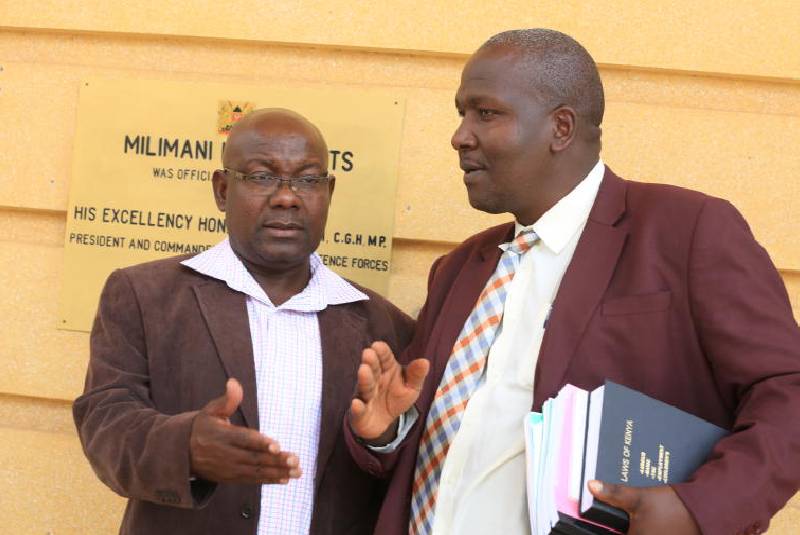×
The Standard e-Paper
Join Thousands Daily

Kenya National Union of Teachers Treasurer John Matiangi (left) talks to union chairman Omucheyi Wycliff at the Milimani Law Courts. [George Njunge, standard]
Teachers have been ordered to report to school today when schools open.